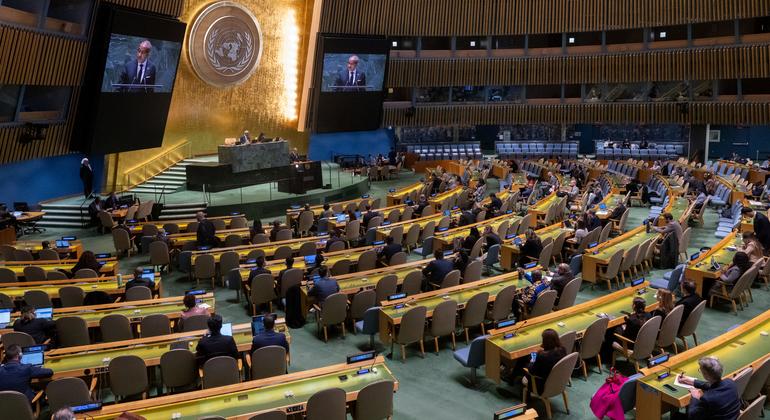On 21 March, the world commemorates the adoption of the International Convention on the Elimination of All Forms of Racial Discrimination, a crucial step in the global fight against racism. This date also serves to honor the memory of the Sharpeville massacre in 1960, a tragic event in South Africa’s history where 69 peaceful protesters were killed by police during a demonstration against apartheid.
Despite significant progress in the intervening years, racism continues to pose a serious threat to societies worldwide, as highlighted by UN Secretary-General António Guterres in a recent message marking the occasion. Guterres emphasized that the poison of racism still infects our world, a toxic legacy of historic injustices such as enslavement, colonialism, and discrimination. This insidious force corrupts communities, stifles opportunities, and destroys lives, undermining the fundamental principles of dignity, equality, and justice.
The International Convention on the Elimination of All Forms of Racial Discrimination stands as a powerful global commitment to eradicating racism, with Guterres calling for universal ratification of the Convention and urging all states to fully implement its provisions. He stressed that combating racism is a shared responsibility that requires the collective effort of governments, business leaders, civil society organizations, and individuals.
At a General Assembly commemoration, General Assembly President Philémon Yang echoed the need to translate the Convention’s principles into concrete action. He emphasized the importance of political will and global solidarity in turning the ambition of the Convention into tangible results. Yang called for a world where dignity, equality, and justice are not just ideals but lived realities for all individuals, everywhere.
Assistant Secretary-General for Human Rights, Ilze Brands Kehris, raised concerns about the rise of xenophobia, hate speech, and divisive rhetoric on a global scale. She warned that racism continues to permeate institutions, social structures, and everyday life in societies worldwide, leading to the targeting, isolation, and scapegoating of racial and ethnic groups. Kehris emphasized the urgent need to address these systemic issues and build a more inclusive and equitable world for all.
Sarah Lewis, founder of the Vision & Justice initiative, highlighted the significance of the Durban Declaration and Programme of Action as a blueprint for eliminating racism and upholding human rights. She pointed out that many societies have been built on foundations of racial discrimination, which not only hinder progress but also harm everyone in the long run. Lewis called on ambassadors and leaders to challenge the false notion of racial superiority and work towards a more just and equal society for all individuals.
As the world reflects on the legacy of the Sharpeville massacre and the ongoing struggle against racism, it is clear that the fight for racial equality and justice is far from over. The International Day for the Elimination of Racial Discrimination serves as a reminder of the importance of unity, solidarity, and collective action in combatting racism in all its forms. Only by working together can we create a world where every individual is treated with dignity, respect, and equality, regardless of their race or ethnicity.









